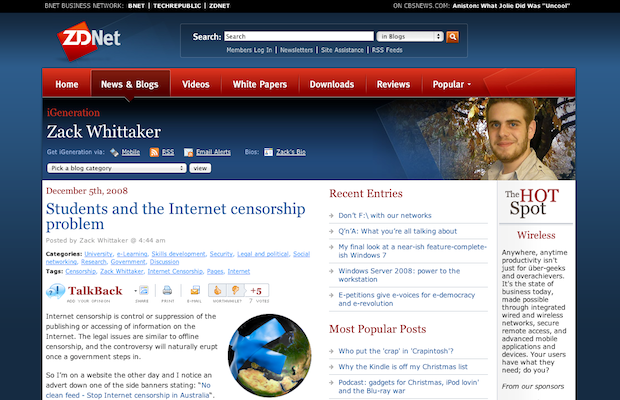What would you do in 3 years, 5 months, 30 days?

And in a matter of hours, it shall be 3 years, 5 months and 31 days.
It will also be day zero.
This column, while at first was to dissect the Generation Y culture and to examine the nuances of this widely misunderstood generation, it morphed and changed into explaining how technology integrates with the 'future' generation, and to give a first-hand perspective as a youngster in a world dominated by middle-aged middle managers.
But beyond this, it was an opportunity to seek out answers to questions many had attempted to or failed to fully breach before.

I would like to think that I accomplished something here. What, exactly, remains unclear. I suppose it would fall down to what an 'accomplishment' is, and the very subjective nature of that concept alone opens up to a world of consideration.
But what we have accomplished together is beyond extraordinary. Just because I write and you read does not devalue the relationship that you and I have. Whether you are a first time reader to this column, or a regular commenter, we work in symbiosis, and that wonderful meeting of minds should never be denied.
Take three examples:
We brought about changes to European law
It took only one chance meeting in a bar in Manhattan, New York to find myself embroiled in what would become one of the most controversial, topical but diplomatically damaging findings ever to come out of ZDNet.After exploring the Patriot Act's theoretical routes into Europe, I discovered that the strongest data protection laws on the world stage were not so secure after all. It took only a chance encounter with Gordon Frazer, managing director of Microsoft UK to make theory into fact, by admitting on the record that the Patriot Act could in fact be invoked to access data stored in Europe.
The diplomatic outage began, and Europe reacted. Over coming weeks and months, the European Parliament cited the research and the admission, and subsequently, after many months of work, made its way into the upcoming European Data Protection Directive, set to be revealed in full in January.
I would fairly say it was a team effort, between you -- the reader -- and I. Without your understanding, considerations, and thought-provoking questions, the theoretical framework that once was may still be so.
We found that citizens are more powerful than 'spin'
Spin is a powerful, widely misunderstood concept. But the voice and collective knowledge of global citizen intelligence is a far stronger being. While governments fight wars and conflicts with words, the mere mortal citizen will document in the face of adversity real-life footage that cannot be negated or ignored.The pepper-spray attack on UC Davis students forced the world to watch what we felt as sickening, grotesque scenes of law enforcement abuse. This, after only weeks of seeing Colonel Gaddafi's dead body dragged through the streets of Sirte like a piece of meat, the polar opposite of the war-torn country where thousands have been killed and victims of human rights abuses, we arrive to the "land of the free".
Whichever way you look at it, from the view that the students should not have been there, to the right-to-free-speech perspective, the sea of cameras negated the official 'spin' that had been reeled out by law enforcement and governments alike.
This powerful tool that we have used to create a web of truth and citizen honesty has perplexed some of the most powerful governments in the world. Once held accountable through democratic means, the 'private' scene of citizen journalism now brings us one step closer to the doors of our respective parliaments or congresses.
All it takes is one person with one camera to change how the world thinks.
We deconstructed Wikileaks and Anonymous
After sifting through article after article, from what was quite literally at times a 'media circus', separating the apparent fact from fiction was an arduous task at very least. Discovering inconsistencies, finding discrepancies, and discounting down-right lies, five months of research left this then-undergraduate student ready to write up what would be the first empirical analysis of the whistleblowing organisation to date.
Not everybody agreed with this work. It was unique research that formed the dissertation for my criminology degree. Unique in not only the work itself, as for any dissertation it must be so, but that the secrecy and deliberate misdirection of the organisation made it almost impossible to dissect the core facts about what made Wikileaks headline news.
But the work is never over, and there is plenty more to explore. As Wikileaks continues to develop and equally struggle, the legacy, whether you agree with the morals, ethics and values of the organisation, will live on for generations.
- -
That is how I spent 3 years, 5 months and 30 days. I may wish to go back and change a thing or two, but between you and I, what has been achieved on this column has been without doubt a group effort.
With that in mind, it's time to make an announcement.